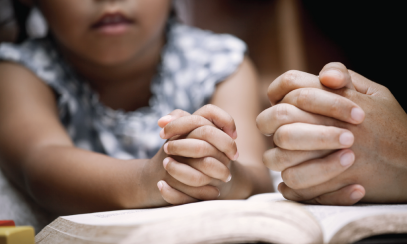
What to Do When Your Kids Scream 'It's Not Fair!'
George Eliot wrote, “Justice is like the kingdom of God: it is not without us as a fact; it is within us as a great yearning.” Soon after toddlers start to speak, parents begin to hear the words, “It’s not fair.” Children and youth have a strong desire for life to be “fair.” This hunger for justice needs guidance, and it can be compared to the hunger of the body. Parents provide the “big picture” in regard to food choices: “Candy tastes good but it doesn’t give your body what it needs to stay healthy. Why don’t you help me put peanut butter on these celery sticks?” Children also need help in developing an understanding of justice so they see the “big picture.”
Comparisons with others. It is natural for children to compare themselves and their “lot in life” to others. After all, adults start making comparisons when they first set eyes on a child, saying things like, “Look, he has Uncle Brack’s nose!” or “Her eyes are the same color as Grandma’s.” But comparisons can lead to feelings of deprivation and the all too familiar phrase, “It’s not fair.”
Justice is not “getting what I want.” When they were preschoolers, I don’t recall any of my children crying out, “It’s not fair – my cake is twice as big as his!” Too often, our sense of fairness rests on getting what we feel we deserve. Advertising highlights all the things we could buy, until these items seem like “needs” instead of “wants.” If children eat whatever they want, whenever they want, then their bodies become unhealthy. Likewise, if we try to provide all their material desires, then it is difficult for our children to develop the Gospel’s sense of justice.
Working as a team for justice. Parents can build a team concept in regard to family resources. For example, saying “We can’t go to Disneyland because Donna needs braces,” may lead to resentment among Donna’s siblings. Instead, explain the financial decisions at the child’s level of understanding. “We have money for everything our family needs, but not for everything our family wants. Still, we get to have a vacation this year, at a campground right by a lake.” Will the children be disappointed and upset? Most likely! But parents can guide their children and help them learn to cope with disappointments. “Yes, it is disappointing, especially when so many of your friends are talking about how much fun it is at Disneyland.”
“Your word is a lamp to guide me and a light for my path.” (Psalm 119:105) The Catechism of the Catholic Church notes that, “The education of conscience is a lifelong task.” (1784) The witness of parents living the beatitudes guides a child’s first steps along the path of justice.



